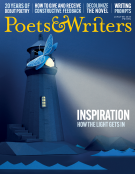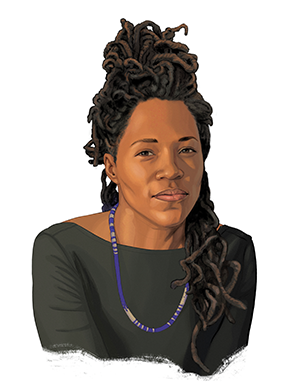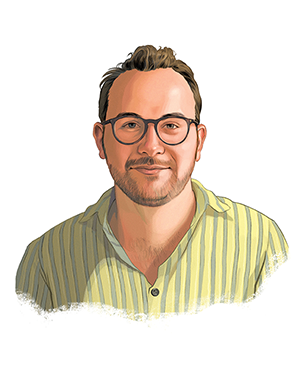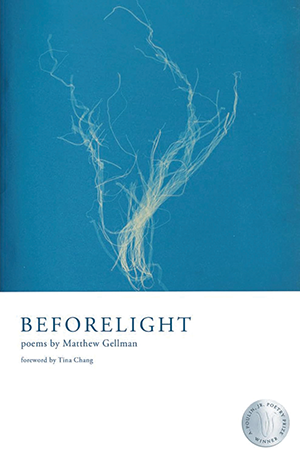Saretta Morgan
Alt-Nature
Coffee House Press
This epic has no hero but flesh
which defies imagination.
—from “Dearth-light”
How it began: Originally I wanted to write poems that described the ways I saw U.S. militarization impacting desert landscapes in Arizona, as well as where and how representations of Black people and our histories took shape in that space of the Southwest. I eventually decided the best way for me to tell that story was to share what it felt like for my body to witness and navigate the physical and affective manifestations of settler violence in those deserts.
Inspiration: Experiencing the different ways people organize to protect relationships with land. Some examples that stand out from the years I was writing Alt-Nature are the 2019 Native Liberation Conference in Gallup, New Mexico, where I first heard Nick Estes speak; the #StopLine3 movement’s Red Lake Treaty Camp, where Amber Morning Star Byars modeled practices for welcoming the day, arriving with trauma, and opening to healing; the NATIVE HEALTH agency’s garden plot I shared with dear friends Rudy P. Guevarra Jr., Amanda R. Tachine, and her family in Phoenix; years of collaboration toward Mojave language preservation between Natalie Diaz and her elder Hubert McCord.
Influences: Ed Roberson for the carefulness and playfulness of his attention to the ambient poetics of Black living. Also Sylvia Wynter and Suzanne Césaire, who aren’t often identified as poets, but I read their work the same way I read poetry. I’m deeply indebted to the frames they offer toward reasserting Black consciousness in relationship to land. This past year I was sitting with a question from the writer Fargo Nissim Tbakhi: “What does Palestine require of us, as writers writing in English from within the imperial core, in this moment of genocide?” The essay this question opens wasn’t published until after Alt-Nature was in print, but I added the quote by hand as an epigraph to my personal copy so that I carry it with me and the question informs my relationship to Alt-Nature as it evolves.
Writer’s block remedy: An impasse in writing is almost always connected to something being “off” with my body, so when language doesn’t feel available, I pay extra attention to my sleep hygiene, my digestion, how I’m dreaming, breathing, and moving. Similarly, when I’m burned out, the best thing I can do is tend to my nervous system through prioritizing rest, nourishing foods, and subtle medicines, like sitting near water or at my altar before dawn.
Advice: Something I was grateful to be reminded of along the way is that books continue to take shape even after they’re published. Think about the community you’re creating around your work as you write it. Build a space that your book can best arrive to.
Finding time to write: I tend to focus on the quality of my writing time rather than the quantity. I can spend months determining what the ideal conditions are for what I’m thinking through. Is it language that feels most present in the mornings as the light is changing? Or directly following time with family? Or after martial arts training the night before? Once I understand what time and presence best prepare me to express a particular feeling, then I know when to protect time for writing. When the conditions are appropriate and consistent I find that I can do a lot in very little time.
Putting the book together: There’s a poem sequence, “Consequences upon arrival,” that I think of as the spine of Alt-Nature in that everything else is physically organized around it. I also see the poems in that sequence as extending Alt-Nature’s nervous system throughout the book. “Consequences upon arrival” was one of the last poems I wrote, but the process of writing it deeply informed how I revised everything else in the book, and even clarified which poems (there were many) I could set aside.
What’s next: Right now I’m sitting with, and learning how to listen to, the rhythms and ecologies of central Georgia, where I am a guest for the foreseeable future. I’m making language toward a novel based on my experiences with the U.S. military and carceral systems and thinking about the different ways Black land stewardship intersects with those industries.
Age: 37.
Residence: Atlanta.
Job: At this moment I’m teaching.
Time spent writing the book: I wrote this book—then wrote it again, and again—a total of three times over the course of five years.
Time spent finding a home for it: Something like three months.
Recommendations for recent debut poetry collections: O (World Poetry) by Judith Kiros, translated from Swedish into English by Kira Josefsson, and Language Arts (Wendy’s Subway) by Justin Allen.
Alt-Nature by Saretta Morgan.
![]()
Matthew Gellman
Beforelight
BOA Editions
(A. Poulin Jr. Poetry Prize)
I want my lips to split
the lit space between the words dance and don’t.
—from “So Much Light”
How it began: I had an intense desire to create order out of the internal chaos I felt as a young person, which I think is the reason so many young poets begin writing. I wanted poetry to serve as an anchor for me, a source of identity in a world where I had never really belonged. Poetry was a means of having an intimate, private conversation with my most inward self, but it also served as a gesture outward, a bid for connection and understanding from other people.
Inspiration: Louise Glück and Anne Carson. My true teachers: April Bernard and Lucie Brock-Broido. Shoegaze bands (Slowdive, Lush, My Bloody Valentine, and so on). Sofia Coppola movies. Japanese woodblock prints. Other queer poets. My friends. My mom.
Influences: Poets Richard Siken and Larry Levis, and photographer Francesca Woodman.
Writer’s block remedy: I try to focus on something outside of myself so I can refresh my perspective and remember that the poem is, at the end of the day, just a poem. Usually this stepping away involves connecting with other people and trying to absorb some of their thinking. I meet a friend for dinner, or call my mom, or go for a walk and listen to music. Then I trust my intuition and let the poem come when it wants to.
Advice: Be willing to write past your own endings in a poem. Don’t stop once the poem clicks shut or “feels done.” Keep the clay wet, aim for surprise, and keep getting out of your comfort zone. When I leaned into uncertainty in my drafting process and stopped only writing the sort of poem I already knew how to write, the book really started to come together.
Finding time to write: When I feel that a poem is ready to come out, I cancel whatever I am doing and give into the experience. This often means staying up late—I’ve always been a night owl.
Putting the book together: I rearranged the poems in my book dozens of times before it was published. I wanted a logical development and for the reader to be taken on an emotional journey that felt satisfying at the end. I also wanted to make sure that none of the poems hit the same note, especially not in close succession. I knew the first five poems were critical, so I spent a lot of time selecting poems that felt strong while also providing key context for the story I tell in the collection.
What’s next: I am working on a second book of poems that deals with queer desire, trauma, and codependency, mostly in the form of interconnected, double sonnet crowns.
Age: 31.
Residence: Los Angeles.
Job: I teach college courses and am currently a PhD candidate.
Time spent writing the book: I worked on the book seriously for about five years, but I have some poems in there that I wrote drafts of when I was 20.
Time spent finding a home for it: Four years.
Recommendations for recent debut poetry collections: Callie Siskel’s Two Minds (Norton) and Christian Gullette’s Coachella Elegy (Trio House Press).
Beforelight by Matthew Gellman.












